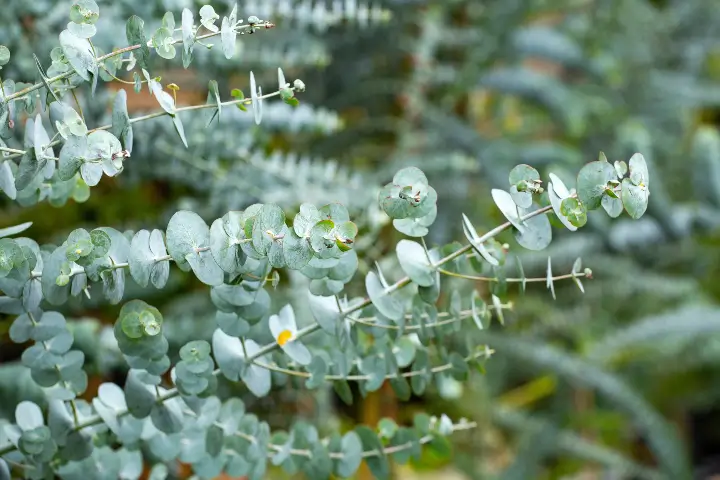
Weeds and invasive plants don’t just look unsightly. They can also disrupt the well-being of your landscape by ruining soil quality and eliminating native plant populations. At Baker Tree Services, we offer fast and reliable invasive plant management services that will safeguard your property against harmful species. From identification and removal to ongoing prevention, we have you covered.
Common Invasive Plants in Western Maryland
Identification is the first step to treating an invasive plant problem. But, it can be hard to spot harmful species until they’ve spread throughout your property. Here in Western Maryland, there are a few invasive plants to keep an eye out for:
-
Japanese Honeysuckle: This shrub grows rapidly and forms dense vines that outcompete native plants. It has fragrant white or yellow flowers.
-
English Ivy: A fast-growing and evergreen vine, English Ivy climbs and spreads all over trees and other structures. It can have a particularly big impact on forests or near buildings.
-
Mile-a-Minute Vine: True to its name, this vine grows extremely quickly. You can recognize this plant by its triangular leaves and barbed stems.
-
Japanese Stiltgrass: An annual grass that forms dense mats, this plant can easily smother native plants. It thrives in both sun and shade locations.
Invasive Plant Removal for Homes, Businesses, and Municipalities
Concerned about invasive plant species infiltrating your property? Look no further than Baker Tree Services’s team of ISA-certified arborists, equipped to identify suspect species and tailor strategic eradication plans. With more than 20 years of expertise, our arborists skillfully manage prevalent invasive plants in Western Maryland, ensuring the preservation of native landscapes.
Whether for homes, businesses, or municipalities, our specialized services cater to safeguarding the integrity of your property against invasive plant threats.
Need a Tree and Plant Healthcare Estimate?
Click below to leave your information and we will call you right back!
Ready to schedule your tree & plant care service?
Leave your information below and we will give you a call back.
*During normal business hours. After hours calls will be returned the next business day.
Invasive Plant FAQs
Why are invasive plants bad?
Invasive plants disrupt the natural balance by overtaking native species, gradually diminishing biodiversity. Their unbridled growth leads to a host of landscape and environmental concerns:
-
Native Plant Displacement: Invasive species thrive without natural checks, overpowering native flora and causing a decline in crucial local plants.
-
Effects on Pollinators and Wildlife: Native plants play a vital role in sustaining local ecosystems, offering essential nutrients and habitats. Invasives disrupt this harmony, impacting wildlife and the surrounding environment.
-
Soil Erosion and Altered Water Systems: With their root systems, invasive plants alter nutrient cycles and soil composition, disrupting water and nutrient distribution. This leads to increased runoff and erosion, hindering the growth of indigenous species.
How do invasive plants spread so quickly?
Invasive species propagate rapidly in new environments because they lack natural predators or competitors. Their resilience against pests and diseases enables quicker population expansion compared to native plants.
How can I stop invasive plants from spreading?
While professional invasive plant control remains the most effective strategy, there are proactive steps to safeguard your property from harmful plant species:
- Boot Brush Stations: Use designated stations to rid hiking boots of seeds.
- Gear Maintenance: Ensure thorough cleaning of outdoor gear post-activities.
Pet Care: Brush off pets’ paws after hikes or walks to new areas to remove seeds. - Native Species Promotion: Opt for native plants when landscaping.
- Mulching: Apply mulch to hinder seed dispersion.
- Identification and Removal: Learn to spot and eliminate invasive species in your yard.
How can I naturally remove invasive plants?
Eliminating invasive plants while preserving native flora can be intricate. If you want to keep invasive species out of your property naturally, we recommend seeking expert guidance for a customized plan. That said, manually pulling invasive plants can be an easy and natural way to limit invasive plants on your property.
Should I report invasive plant sightings?
Managing invasive plants is a community-wide effort. Experts and volunteers rely on sighting data to combat non-native species. In Western Maryland, you can report sightings directly to the Maryland Department of Agriculture.
Professional Invasive Plant Control
Unchecked invasive plants wreak havoc on local landscapes and ecosystems. Trust Baker Tree Services to lead the charge. With profound local expertise, our adept team implements best practices to eradicate invasive species, nurturing the health and longevity of native plants. We cater to properties of all sizes, from households to municipalities.
Worried you have invasive plants in your landscape? Call our ISA-certified experts today!
Invasive Plant Management in Frederick County
Serving the Frederick County and Hagerstown Metro Area
Frederick | Ballenger Creek | Mt. Airy | Westminster | Fairfield | Carroll Valley
Gettysburg (PA) | Hagerstown | Waynesboro (PA) | Myersville | Smithsburg | Emmitsburg | Taneytown
Home » Tree and Plant Healthcare » Invasive Plant Management



